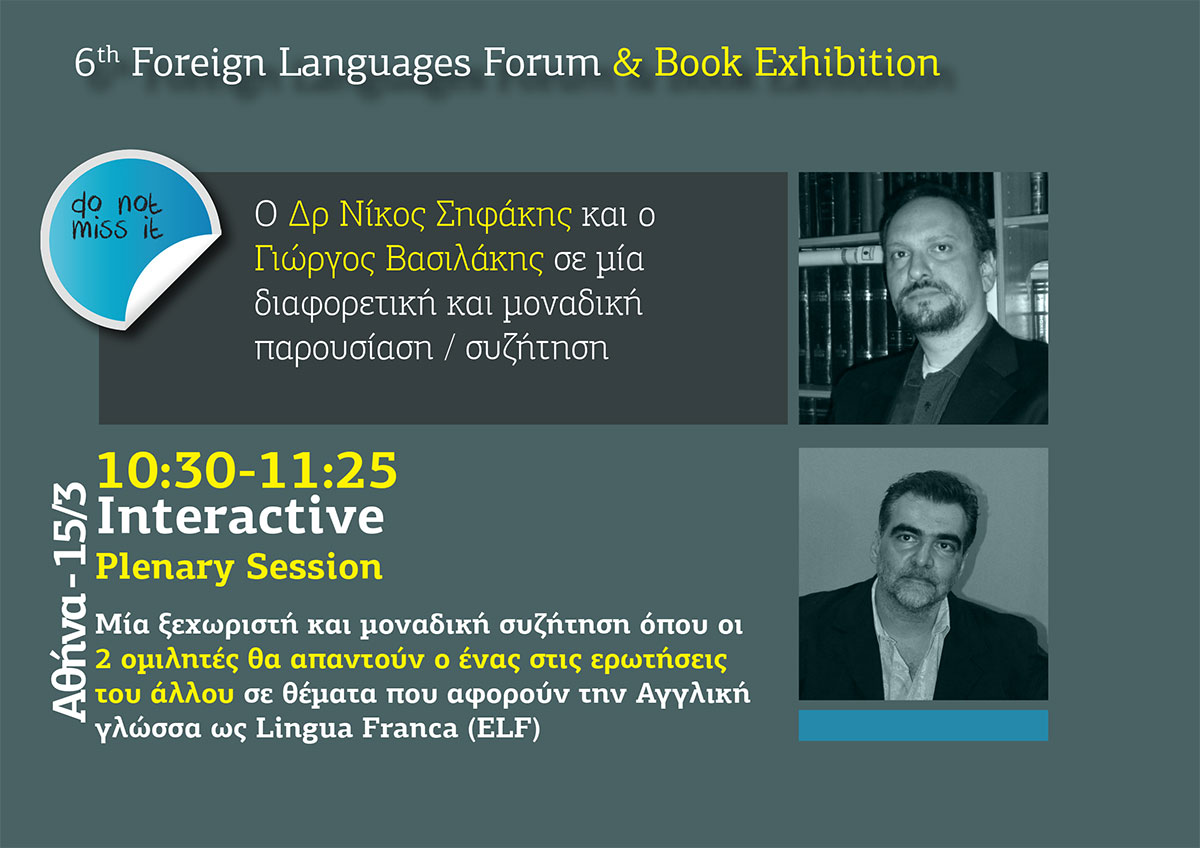The Global Spread of English/ English as a Lingua Franca (ELF): an interactive presentation with Dr Nicos Sifakis, Hellenic Open University, and Mr George Vassilakis, Academic Director of City & Guilds Exams. The two scholars will debate on the global spread of English and how this has affected teaching world-wide.
Title: The Global Spread of English/ English as a Lingua Franca
 An Interactive presentation with Dr Nicos Sifakis, Hellenic Open University, and
An Interactive presentation with Dr Nicos Sifakis, Hellenic Open University, and
Mr George Vassilakis, Academic Director of City & Guilds Exams
The expanding use of English around the world is due to a variety of reasons. Crystal maintains that this increase can primarily be attributed to the British colonization era of the 17th century. It is also related to the industrial revolution headed by Britain during the 18th and 19th centuries as well as the role played by the United States of America as an economic and military power. Graddol points out that this spread of English will continue in the 21st century.
The dominance of the English speaking countries in various fields gives English an even higher status. English is now the language of international relations, security and travel, media, education, and communications. This wide spread of English around the world has resulted in an increasing number of speakers of English. English is now the language most widely taught as a foreign language in over 100 countries.

English as a lingua franca
In recent years, the term ‘English as a lingua franca’ (ELF) has emerged as a way of referring to communication in English between speakers with different first languages. Since roughly only one out of every four users of English in the world is a native speaker of the language (Crystal 2003), most ELF interactions take place among ‘non-native’ speakers of English.
Although this does not preclude the participation of English native speakers in ELF interaction, what is distinctive about ELF is that, in most cases, it is ‘a ‘contact language’ between persons who share neither a common native tongue nor a common (national) culture, and for whom English is the chosen foreign language of communication’ (Firth 1996: 240). As a consequence of its international use, English is being shaped at least as much by its non-native speakers as by its native speakers.
Discussion Topics for the plenary session
1. Is ELF research beginning to have an impact on ELT practices?
2. Testing is a huge area in ELT and a source of income for testing organisations. Have you seen changes in tests that reflect the shift from EFL to ELF?
3. Teacher education currently focuses on traditional/conventional frames of reference. Who has the ‘power’ to challenge this tradition and introduce teacher training in ELF?
4. How will teachers be convinced not to pay so much attention to accuracy but to efficiency in communication with native and non-native speakers of English?
5. Is teaching Standard English ‘safer’ than swimming in the ‘unknown’ waters of ELF?
